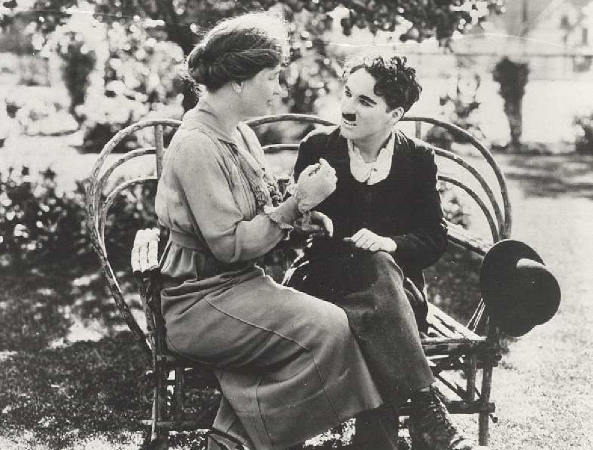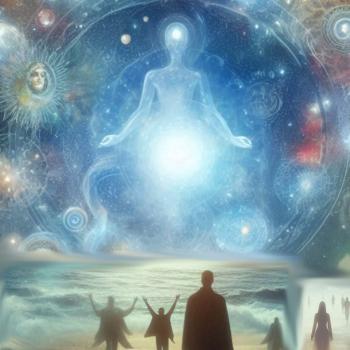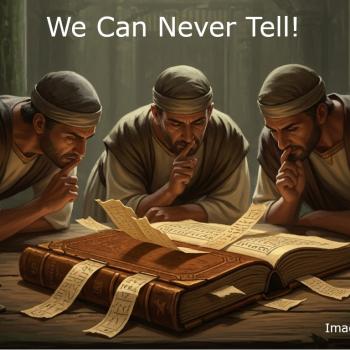Practical Spirituality series
Two awe-inspiring people are Helen Keller and Charlie Chaplin. Chaplin is one of my favorite actors. In silent film, he communicated through his expressiveness. The immense painful experiences in his early life apparently gave him the ability to create lovable and expressive characters like the Hobo and The Tramp.
Helen Keller was both deaf and blind at 19 months. Very patient people worked with her so that eventually she could communicate and talk to large groups of people.
The power of both to overcome immense hardship is an inspiration to us all.

“’This is My commandment, that you love one another, just as I have loved you. Greater love has no one than this, that one lay down his life for his friends.’” – John 15:12-13 (NASB)
The support of others leads to life achievement
Charlie Chaplin. Poverty and hardship defined Chaplin’s childhood in London. His father was absent. His mother grappled with financial hardships which sent both of them to a workhouse twice before Chaplin was nine. When he was 14, his mother was committed to a mental asylum, leaving him with his father, a cruel drunk, until child cruelty came to the attention of authorities who removed him.
Charlie Chaplin became a very successful actor and had his own movie studio, United Artists in California, where he acted, directed, produced, and composed film music. He remarked that his mother’s encouragement imbued him with the feeling that he had some sort of talent.” He also remembered that, even with meager possessions, his mother kept the house neat and clean, which always made him feel good.
This reminds us that just one person can have an enormous effect in another person’s life. Small things and encouragement work. Just one person who believes in you can help propel you into great achievements.
Helen Keller. Imagine not being able to see or hear the world around you. How could you learn to communicate? People had not yet invented sign language and Braille. You wouldn’t know your name or even your parents.
When Helen Keller was born, individuals who were deaf and blind had little hope. Her parents worked hard to find solutions for her and even developed a method of communication on her hand. At age seven, she met her first teacher, who would become her lifelong companion, Anne Sullivan. She regards that date as her soul’s birthday.
Sullivan taught Keller language, including reading and writing. Keller, after schooling at specialist and mainstream schools, earned a Bachelor of Arts degree from Radcliffe College of Harvard, becoming the first deaf-blind person in the US to do so.
Keller became an author, disability rights advocate, political activist, and lecturer. She is evidence of the power of others who love us and stand by us to make major differences in our lives, starting from ground zero when all seems hopeless.
Limitations are few
In the US and Western Countries, there are hardly any restrictions on our ability to do successful things or become anything we desire. Other countries are catching up.
Raising children is one of the most awe-inspiring things any of us can do. It’s a career that requires a large diversity of talents. I told our children that they could do or become anything they aspired to be.
One of our daughters in her teen years was flying planes, just as my mother did as a teen in the 1940s. I hoped my encouragement would open a universe of opportunities for them in their minds. Judging from the outcome, I’m satisfied all three pursue anything they want.
All of our children have made achievements in their lives despite having lived through several devastating problems. What we set our minds on, we can achieve if we just believe in ourselves and try.
Sadly, I know of another mother, a druggie, who told her child that he would achieve nothing except to become another druggie and that she never wanted him. Others graciously stepped in and gave him better advice. Each of us have a role in counteracting the negativity surrounding other people. We each can make a vast difference.
Conclusion
What does God ask of us? What is required by love? It’s the power of God and the love shown by others to lift us up and make an enormous difference in our lives. We each have a role in others’ lives. We each can make a profound difference through the little things we do to show support and encouragement.
Probability Space
What probability spaces can we open in our minds to focus on the role we have in others’ lives? We are surrounded by people in need.
In this age of school and Internet bullying that leads to suicide, and of isolation that leads to school shootings, we need to think of ways to identify when these are looming large in people’s minds and reach out and encourage these people. We have to keep in mind that peer opinions are usually more persuasive than parents and teachers, and engage other young people in this process.
I find it very encouraging when people start sports teams with marginalized inner-city youth who live in poverty and have no opportunities. I wish more of this was done in rural areas where isolated young adults feel just as hopeless about opportunity as inner-city young adults.
It’s very encouraging to me when I see sports teams bring disadvantaged youth, like those with Down Syndrome, into their activities.
Potential Space
If you think creatively and allow your mind to wander and explore, how can we make the world fairer in the realm of opportunity and encouragement?
– Dorian
Our answer is God. God’s answer is us. Together we make the world better.












